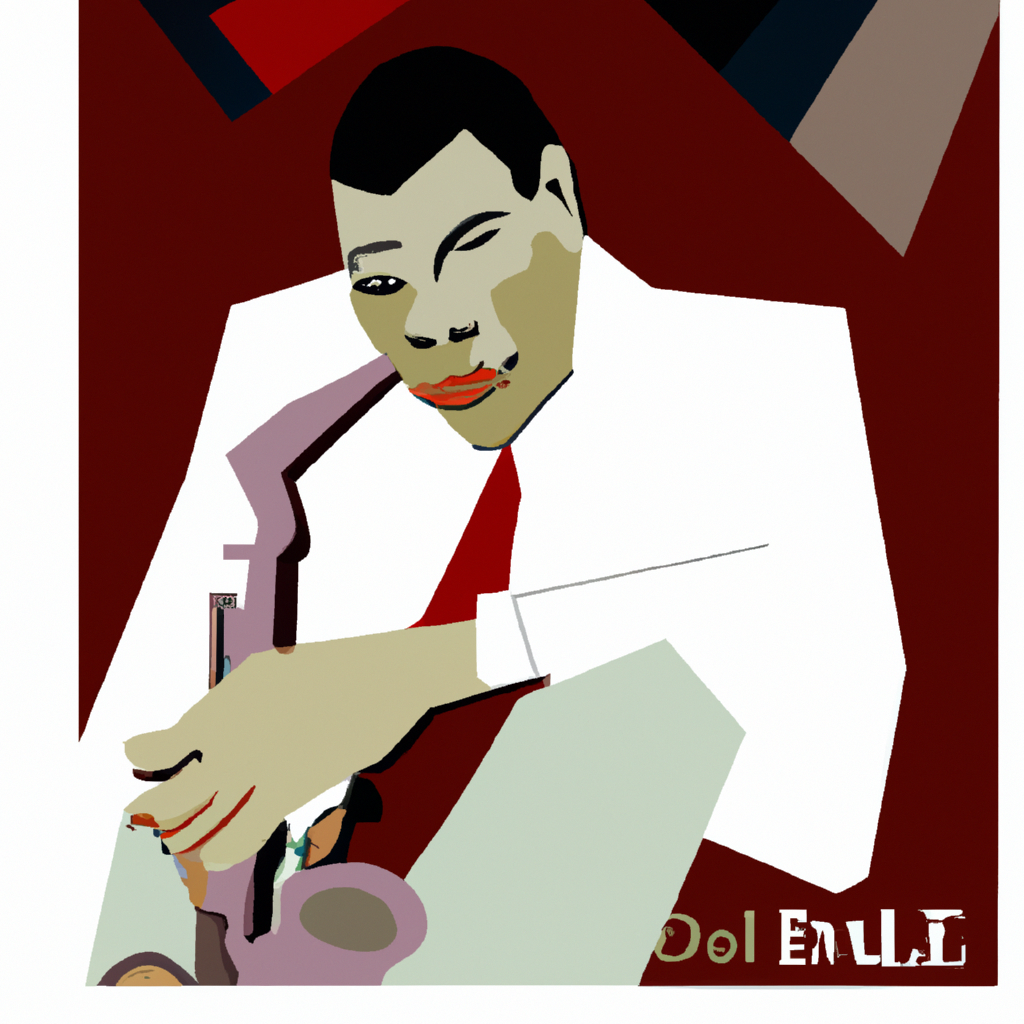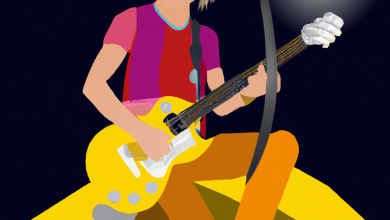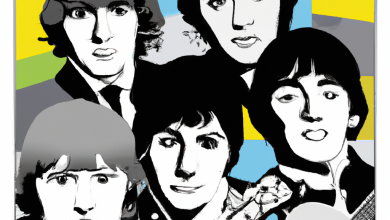
I. Introduction
Jazz music is a genre of music that originated in the United States during the late 19th and early 20th centuries. The roots of jazz can be traced back to West African rhythms and musical traditions brought to America by enslaved Africans. The genre developed in the United States and has since become a significant part of American history and culture. Jazz music is known for its improvisational nature, syncopated rhythms, and use of a wide range of instruments.
The history of jazz music in America is a rich one. It has been shaped by various cultural and social movements and has been influenced by diverse musical traditions from around the world. From its earliest roots in New Orleans, jazz music has flourished in different regions of the United States, gaining popularity among both Black and white audiences. Jazz music evolved over time, taking on different forms such as swing, bebop, cool jazz, and fusion. Today, Jazz has a global following, with fans and musicians from all over the world.
In this article, we will explore the importance of jazz music in American history and culture. We will examine how jazz music reflects American culture, its significance to American social and political movements, the contributions of jazz musicians to American music, and the legacy of jazz in popular music today.
Jazz music is an integral part of American culture, and its history reflects the complex and diverse cultural landscape of the United States. In the following sections, we will explore the significance of jazz music in American society and how it has influenced American culture over time.

II. Jazz Music as a Reflection of American Culture
Jazz music is a product of American diversity and cultural fusion. During the early 20th century, jazz emerged in different parts of the United States, with New Orleans being the birthplace of this unique musical genre. Jazz combined different musical traditions and genres, including blues, ragtime, and military marches, to create a new form of music. Jazz was characterized by improvisation, syncopated rhythm, and swing feel. Jazz music has evolved over time, and different styles such as swing, bebop, cool jazz, and fusion have emerged.
One of the most significant contributions of jazz to American culture is its influence on popular music. Jazz has influenced different genres, including rock, hip hop, and R&B. Some of the most iconic American musicians, such as Elvis Presley and Bob Dylan, have acknowledged the influence of jazz music. Jazz music’s influence extended beyond America, with musicians in different parts of the world, including Europe and Africa, embracing it to create new forms of music.
Jazz music also represents the struggle and triumph of Black Americans in the United States. During the early 20th century, Black Americans faced institutionalized racism and segregation. Jazz music offered African Americans the platform to express themselves and celebrate their culture. Jazz musicians such as Louis Armstrong and Duke Ellington used their music to spread awareness about their struggles and the need for social justice. Jazz music also served as a source of inspiration for other social movements, including the Civil Rights Movement.
In conclusion, jazz music is a reflection of American culture, diversity, and cultural fusion. It has influenced different music genres and played a crucial role in the struggle and triumph of Black Americans in the United States. Jazz music has left an indelible mark in American history and culture and will continue to inspire musicians and music lovers for generations to come.
III. Jazz Music and Social Movements in America
Jazz music has played a significant role in social and political movements throughout American history. It provided a voice to the marginalized and oppressed, serving as a platform for resistance and activism. As a genre of music, jazz was born from the African American experience, and it reflects the struggles, triumphs, joys, and pains of the community.
Jazz as an Important Tool for Social Change
Jazz music served as an essential tool for social change during the 20th century. Jazz musicians used their music to highlight social and political issues and draw attention to the plight of African Americans. For example, the legendary musician, Duke Ellington, used his music to call attention to the racial discrimination and marginalization of Black Americans. Similarly, Louis Armstrong’s music reached across racial divides, and many people saw him as a cultural ambassador for the United States.
Role of Jazz in the Civil Rights Movement
Jazz mobilized people and was a driving force behind the Civil Rights Movement. It was played on marches, protests, and rallies, and musicians used their music to amplify the message of the movement. Jazz music was a significant part of Martin Luther King Jr.’s “Freedom Now Suite,” and John Coltrane composed “Alabama” as a response to the 16th Street Baptist Church bombing in Birmingham. Moreover, the Gil Scott-Heron’s spoken-word piece “The Revolution Will Not Be Televised” became an anthem for social and political resistance.
Importance of Jazz Clubs as Safe Spaces for African Americans
Jazz clubs served as crucial safe spaces for Black Americans during the time of segregation. Jazz musicians like Charlie Parker, Dizzy Gillespie, and Miles Davis, played in these clubs, providing an avenue for people to escape the everyday realities of segregation and discrimination. These clubs were not only places to listen to music but also to build a community and a sense of belonging. In the face of discrimination, jazz clubs played an essential role in preserving Black American culture and traditions.
In conclusion, jazz music has played a critical role in American history and culture. It has been used as a tool for social change, served as a voice for the marginalized and oppressed, and provided safe spaces for African Americans. Jazz has endured through the decades and remains a symbol of resistance, resilience, and community. Its legacy continues to inspire future generations to strive for equality, justice, and freedom.
IV. Jazz Music and American Politics
Jazz music has also played a significant role in American politics, both at home and abroad. Jazz was used as a diplomatic tool during the Cold War era to promote American culture and values in foreign countries. The United States government sent Jazz musicians on diplomatic missions abroad to demonstrate cultural and racial integration in America. The State Department organized the “Jazz Ambassadors” program, in which Jazz musicians were sent to perform in various countries, including the Soviet Union, Africa, and Asia.
The Jazz Ambassadors program was highly successful in promoting American values of democracy, freedom, and equality. It was also instrumental in breaking down ethnic and cultural barriers, and fostering goodwill between the United States and other countries. The program helped to create a positive image of the United States in the minds of people of other nations.
Many Jazz musicians were also involved in political activism in America. Jazz musicians were often at the forefront of social movements during the Civil Rights era. They used their music to express their political views and create awareness about social issues. Jazz musicians like Nina Simone, Max Roach, and Abbey Lincoln were actively involved in the Civil Rights Movement and used their platform to advocate for racial equality.
Jazz also provided a platform for musicians to voice their dissent against government policies. During the Vietnam War, many Jazz musicians used their music as a form of protest against the war. Their music was critical of the government’s policies and its handling of the war.
In conclusion, Jazz music has been an essential component of American politics since its inception. Jazz has been used as a diplomatic tool to promote American values and culture abroad, and Jazz musicians have been active participants in social and political activism in America. Jazz has not only been a form of entertainment but has also played a critical role in shaping America’s political and cultural landscape.
V. Jazz Musicians and Their Contributions to American Music
Jazz music has produced some of the most iconic and influential musicians of the 20th century. These musicians contributed much to the evolution of American music, and many of their innovations and techniques are found in various genres today.
One of the most notable Jazz musicians is Louis Armstrong. Born and raised in New Orleans, Armstrong developed a unique style of playing the trumpet that emphasized improvisation and swing. He popularized scat singing, which is a vocal technique where the singer uses nonsensical phrases and sounds instead of actual lyrics. Armstrong’s music has been claimed as a significant influence in the development of modern jazz, as well as popular music genres like rock and roll.
Another influential Jazz musician is Duke Ellington, a pianist, composer, and bandleader. He was one of the most significant figures in Jazz music, and he composed over a thousand pieces of music, some of which have become Jazz standards. One of his most famous compositions is “Take the ‘A’ Train,” a song that has become synonymous with the Swing era.
Miles Davis is another Jazz legend who explored new territories in Jazz music. He was a master of improvisation and experimented with different styles, often incorporating elements of rock and funk into his music. Davis’ album “Kind of Blue” is considered a masterpiece and is the best-selling Jazz album of all time.
Jazz music also paved the way for other musical genres. For example, the progressive rock band, Yes, incorporated a wide variety of Jazz influences into their sound. They used unique time signatures and incorporated Jazz chord progressions in their music.
Jazz’s influence on popular music today is undeniable as Jazz-influenced songs continue to top music charts worldwide. Jazz’s enduring legacy in American music is also evident in the numerous Jazz festivals and clubs that keep the music alive.
In conclusion, Jazz music and its iconic innovators have had immeasurable contributions to American culture and music. From popularizing scat singing to introducing new chord progressions, Jazz musicians continue to influence the sound of modern music today. Its legacy continues to inspire new generations of musicians and listeners.
VI. Conclusion
In conclusion, it is clear that jazz music has played a crucial role in shaping American history and culture. From its early roots in New Orleans, jazz music has evolved into a dynamic and diverse art form that has impacted society in numerous ways. Jazz music has represented the voices of diverse communities, struggled for social justice and equality, and has become an important tool for diplomacy and cultural exchange.
Jazz music is a reflection of American culture and diversity, and its influence is felt across numerous genres of music. Jazz has been used as a force for change, especially during the Civil Rights Movement when jazz musicians used their voice and their talents to advocate for equality and justice. Jazz clubs and music gatherings were also safe spaces for African Americans during the Jim Crow era.
Jazz music is not only an important cultural artifact but has played a significant part as a tool for political activism. All over the world, jazz music has been used as a cultural ambassador, spreading the message of goodwill and peace. Jazz musicians have been honored and respected by world leaders, lending to its diplomatic significance.
Furthermore, Jazz music has given birth to many legendary Jazz musicians such as Louis Armstrong, Duke Ellington, John Coltrane, and Miles Davis, to name a few. The contributions made by these and many other Jazz musicians have left an indelible mark on American music. Jazz continues to influence popular music today and serve as a source of inspiration for future jazz musicians.
Looking towards the future, it is critical that we preserve the legacy and importance of jazz music. Many schools across America offer jazz programs, keeping the tradition alive. It is important to continue to support and fund these programs to ensure that future generations can understand and appreciate the significance of Jazz music.
In conclusion, jazz music is an essential element of American history and culture. It represents diversity and social progress while highlighting the critical role of art in society. Jazz music has had a profound impact on American culture and music and will undoubtedly continue to do so in the future.



